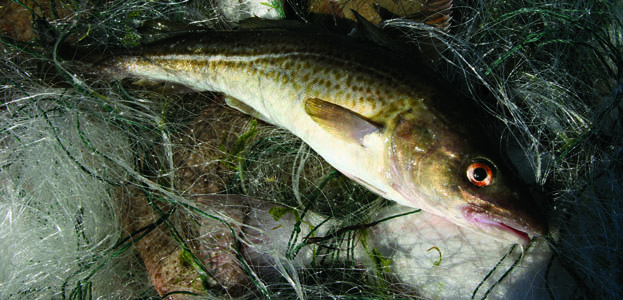
Marine Scientist Discusses Cod Colonization
New evidence suggests that Atlantic cod may have the ability to affect entire food webs in both benthic and pelagic marine ecosystems, according to a University of Maine marine scientist, writing in the Proceedings of the National Academy of Sciences (PNAS).
“Not only are (cod) strong interactors capable of limiting the abundance of their prey and their prey’s prey, but also the prey themselves may limit the recovery of this predator,” says Robert Steneck of the large carnivore that, prior to overfishing, was “widespread, abundant and possibly the most important predator throughout the coastal regions of the North Atlantic.”
“In most countries where fisheries management exists, the focus is on the dynamics of single species,” says Steneck, “and often there is no consideration of how two or more managed species interact or how such interactions can affect the entire ecosystem.”
In his PNAS commentary published May 14, Steneck points to an event in which an overabundance of Atlantic Cod in the Baltic Sea spilled over into the Gulf of Riga, as reported by a research team led by Michele Casini of the Swedish Board of Fisheries. The “predator pulse” — in-migration of juvenile and adult cod — into the gulf lasted a decade, causing a trophic cascade in the marine food web. Cod ate the herring, causing the herbivorous zooplankton population normally eaten by herring to increase. Because zooplankton consumed phytoplankton, water in the Gulf of Riga cleared, but only for the decade when cod spilled into the region.
This example of successful, albeit serendipitous, cod colonization provides clues as to how cod repopulation occurs and why it isn’t as simple as closing large areas to fishing when Atlantic cod stocks collapse, Steneck contends. In the case of Canada and the United States, fishing managers expected a full recovery of cod stocks within a decade after the closures in the early 1990s; nearly two decades later, cod stocks remain historically low. It is possible that colonization of new or depleted areas occurs by influx of larger cod rather than cod larvae when adjacent populations reach high population densities, which has not happened in New England for at least decades, says Steneck.
Contact: Margaret Nagle, (207) 581-3745
